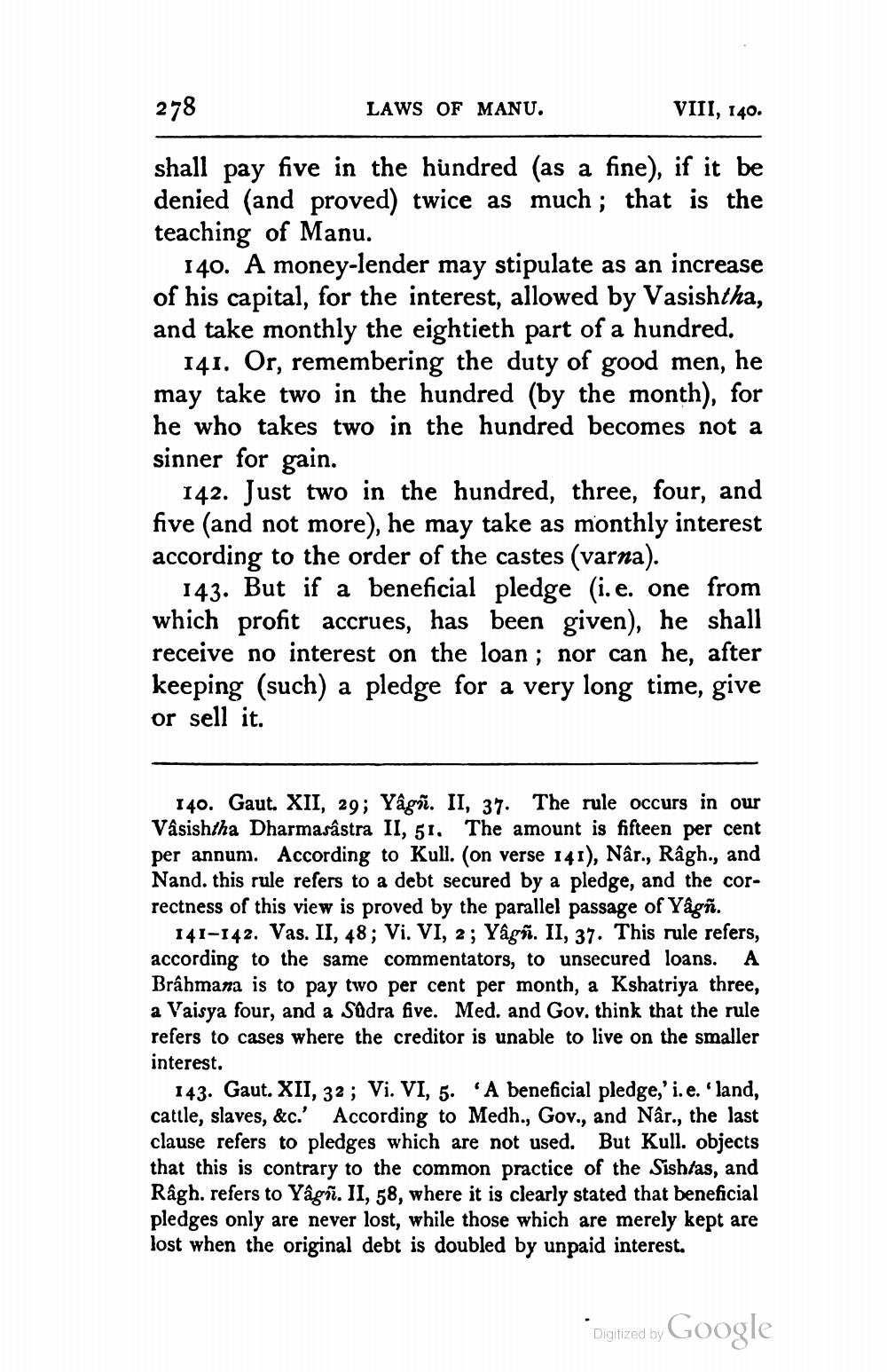________________
278
LAWS OF MANU.
VIII, 140.
shall pay five in the hundred (as a fine), if it be denied (and proved) twice as much; that is the teaching of Manu.
140. A money-lender may stipulate as an increase of his capital, for the interest, allowed by Vasishtha, and take monthly the eightieth part of a hundred.
141. Or, remembering the duty of good men, he may take two in the hundred (by the month), for he who takes two in the hundred becomes not a sinner for gain.
142. Just two in the hundred, three, four, and five (and not more), he may take as monthly interest according to the order of the castes (varna).
143. But if a beneficial pledge (i.e. one from which profit accrues, has been given), he shall receive no interest on the loan ; nor can he, after keeping (such) a pledge for a very long time, give or sell it.
140. Gaut. XII, 29; Yâgã. II, 37. The rule occurs in our Vâsishtha Dharmasastra II, 51. The amount is fifteen per cent per annum. According to Kull. (on verse 141), Nâr., Râgh., and Nand. this rule refers to a debt secured by a pledge, and the correctness of this view is proved by the parallel passage of Yågñ.
141-142. Vas. II, 48; Vi. VI, 2; Yagñ. II, 37. This rule refers, according to the same commentators, to unsecured loans. A Brâhmana is to pay two per cent per month, a Kshatriya three, a Vaisya four, and a Sudra five. Med. and Gov. think that the rule refers to cases where the creditor is unable to live on the smaller interest.
143. Gaut. XII, 32 ; VI. VI, 5. A beneficial pledge,' i.e. 'land, cattle, slaves, &c. According to Medh., Gov., and Når., the last clause refers to pledges which are not used. But Kull. objects that this is contrary to the common practice of the Sishtas, and Râgh. refers to Yågñ. II, 58, where it is clearly stated that beneficial pledges only are never lost, while those which are merely kept are lost when the original debt is doubled by unpaid interest.
"Digiized by Google
Digitized by




